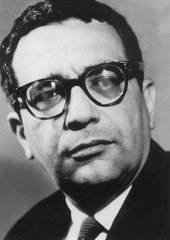|
Back
From Baku With Love New York
Weill Recital Hall, Carnegie Hall
03/30/2023 -
Wolfgang Amadeus Mozart: Fantasy in D Minor, K. 385g [397] – Sonata in F Major, K. 189e [280] – Requiem, K. 626: “Lachrimosa” (Arr. Franz Liszt)
Fritz Kreisler: Liebesleid (Arr. Sergei Rachmaninov)
Sergei Rachmaninov: Morceaux de fantaisie, Opus 3: 1. “Elégie” – Preludes, Opus 23: 5. Prelude in G Minor
Frédéric Chopin: Berceuse, Opus 57 – Nocturnes, Opus 48, Opus 9, No. 1 & Opus 55, No. 1
Kara Karayev: Seven Beauties: “Dance of the Most Beautiful Beauty” & “Dance of Aisha” – In the Path of Thunder: “Dance of the Passionate Girl”
Nargiz Aliyarova (Pianist) 
N. Aliyarova (© Courtesy of the Artist)
“To me, Baku is the most beautiful city in the world. Every morning, when the city wakes whether it be to the sun or the rain and fog, every morning my city sings. Baku is meant for art. It gives me so much pleasure to write about this city no matter if you write music, verse or paint images.”
Kara Karayev
The first Azerbaijan song I ever heard was ersatz Azerbaijani. Luciano Berio’s final section of Folk Songs is called “Azerbaijan Love Song”. But Cathy Berberian, coming from neighboring Armenia, said that neither she not Berio hadn’t the slightest idea whether the words came from Azerbaijan or not.
“Luciano liked the sounds, so we copied them down. But never knew anybody from the country, so the words were just nonsense.”
They should have waited a few years. Baku‑born, Baku‑trained and New York resident Nargiz Aliyarova has championed the music of her home, just as her piano recitals have championed Chopin, Mozart and the rest of the classics. Not only that but Ms. Aliyarova last night demonstrated a singular open‑hearted feeling for all the suffering people of her region.
Turkey’s language bears some slight resemblance to Azerbajani, as do their mutual Islamic beliefs. No restrictions stopped Ms. Aliyarova from giving her concert as a charity event for Turkey itself.
“The proceeds from this event,” she wrote, “will go towards helping with the earthquake relief efforts in Türkiye.” And for that, as well as her reputation, both the balcony and auditorium of Weill Concert Hall were packed to the rafters, with the most diverse listeners, both adults and children.
They listened with adoration, both to Ms. Aliyarova’s emotional descriptions before each group of composers–and her playing as well. The artist has performed several times in Carnegie Hall, but this was my initial discovery. And I had little doubt that she is a pianist of intelligence, fine technique, and above all, passion.
Whether her music was chosen for the Turkish earthquake horrors or not, her recital had music which reached into the most profound human spirit. Yes, Mozart’s D Minor Fantasy is amongst the deepest personal agonies he ever wrote. . But the second movement of the K. 280 Sonata was equally distressing. Add to that Liszt’s arrangement of the Requiem‘s Lachrymosa, and some Chopin Nocturnes, and you had a feeling of...well, not despair. But of resignation.
Ms. Aliyarova opened with that so Romantic-seeking Fantasy with a deepness that is only belied by the too joyous (and unfinished) second section. The depth was greater than the Liszt overblown section from the Requiem. He couldn’t resist. How nice if pianists could resist the dross over the original.
Ms. Aliyarova played the outer movements of Mozart’s early F Major Sonata with exuberance. But the Adagio was particularly funereal and played accordingly.
The following Rachmaninov and Chopin had Ms. Aliyarova’s trademarks. She conducts herself (when necessary with one hand), her face echoes the notes and the feelings. She has no problem with highly virtuosic passages, nor is she particularly original in her playing. But one feels comfortable, the way she obviously feels comfortable with the familiar music.

K. Karayev
Definitely not familiar was the Azerbaijani composer Kara Karayev, who lived from the 1918 Russian Revolution through the annexation of his country to independence, dying in 1982. Though he was conservative enough to win the Stalin Prize, he was equally an advocate of American jazz (obviously an apostate to Uncle Joe), and knew the most advance music of his time.
The few works I heard on YouTube had an Armenian Jollity, a dance‑like playfulness. The four “dances” from his ballet were strangely appealing. At first simple, but later each dance varied with pentatonic scales reminiscent of Borodin’s “Central Asian” music.
Borodin never ventured east of Moscow, so his “Orientalisms”, while super music, were no more authentic than In a Persian Garden. Mr. Karayev lived his life in Azerbajian, inhaling the mixture of Persian, Turkish, Asian and ancient Islamic Azerbaijani traditions. As well as a balletic danceability.
Ms. Aliyarova played it with fluidity, exhilaration and deep adoration for the music of her home.
And our delight.
Harry Rolnick
|